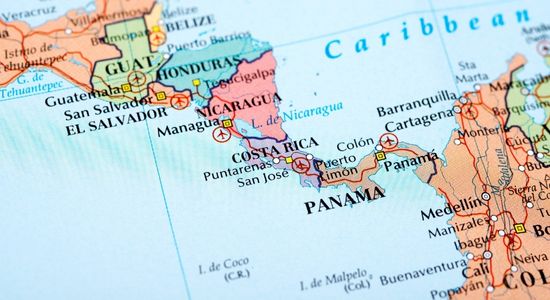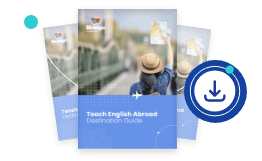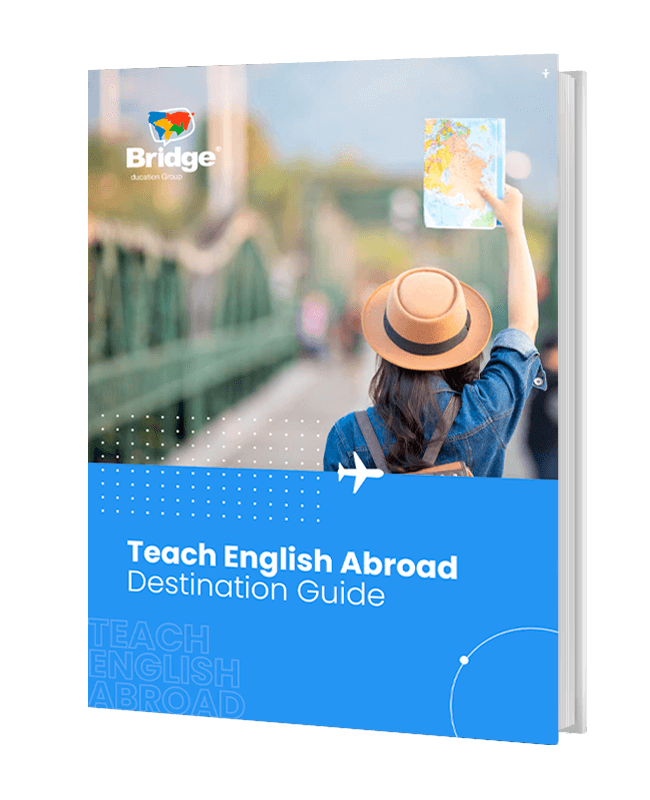If your dream TEFL experience abroad involves having pristine beaches at your fingertips and living in a laid-back culture, then you should have your sights set on a Costa Rica TEFL job. With its strong demand for English teachers and accessible requirements, this Central American country is a tropical haven not only for teaching English in person but for digital nomads too. Let’s take a look at what you need to teach English in Costa Rica, including the types of jobs you can land, the qualifications you’ll need, and what teachers have shared about living the pura vida lifestyle.
If you’re new to teaching, you’ll want to get initial training and qualification with a TEFL certificate. You can explore our online TEFL courses to get started.

Is there demand for English teachers in Costa Rica?
Costa Rica is one of the countries in Central America where the demand for EFL teachers is constantly high, making it easy to find English teaching jobs. Most opportunities are in the capital, San José, and other major cities and towns, but jobs are also available in the coastal areas. Jobs are available all year round, although it’s best to start your job hunt around December or January, before the academic year starts in February.
While it is possible to find opportunities to teach young learners in Costa Rica, the most popular EFL teaching jobs are with adults, many of whom want to improve their English skills in the workplace.
Kickstart your English language teaching career with
Professional TEFL/TESOL Certification
Get CertifiedWhat qualifications do you need to teach English in Costa Rica?
Generally speaking, the requirements for teachers in Costa Rica are not that strict. Here are the most important qualifications you have to check to teach English in Costa Rica:
TEFL certification
Having a TEFL certification is essential for teaching English in Costa Rica. It’s also important to note that earning a TEFL/TESOL certificate of at least 120 hours is the best choice – not only is it a requirement by the majority of employers, but it will certainly make landing quality TEFL jobs in the country easier.
-
If you don’t hold a TEFL/TESOL certification yet, taking the self-paced course 120-hour Master Certificate course will equip you with the essentials of English instruction and learn the core methodologies of teaching the different aspects of teaching the language (vocabulary, grammar, pronunciation, etc.).
Looking to stand out further or expand your market in Costa Rica? Adding professional development certifications to your credentials, like a Specialized Certificate in Teaching Business English or Teaching English Online, is the way to go.
Meanwhile, suppose you’re hoping to work in bilingual or public schools. In that case, a Specialized Certificate in CLIL Methodology will not only boost your resume but also help you be better prepared for teaching other subjects in the English language in these institutions.
What are the benefits of CLIL in bilingual education? Find out here.
Degrees
One of the major draws for people who want to teach English in Costa Rica is that a bachelor’s degree is not required. Nevertheless, it may be necessary for teaching in private international or bilingual schools.
Prior teaching experience
Similarly, teaching experience is not a requirement if you want to teach in Costa Rica, although this may be preferred by some companies. Meanwhile, if you’d like to start gaining experience to be qualified (or feel more confident to teach before applying to a company), you can also find plenty of opportunities to teach English as a volunteer with non-profit organizations.
Learn more about teaching English without a degree and without experience.
Visas
You’ll need a work visa to teach English in Costa Rica. Processing this visa may involve a lot of documentation (e.g., copies of your degree, TEFL certificate, background check…), although there are companies that provide work visa assistance.
The Costa Rican government also offers a digital nomad visa, which can be issued to remote workers and freelancers working for a foreign company as well as entrepreneurs who want to stay in the country for a longer time (tourist visas for Costa Rica are typically valid for up to 90 days). With this digital nomad visa, you can stay in Costa Rica for up to a year, and you can extend it for another year (provided that you’ve stayed in the country for at least 80 days).

What is life like for English teachers in Costa Rica?
As there are no age limits to teaching English in Costa Rica, it is also a popular destination for retirees who want to transition or continue in TEFL. In fact, Costa Rican students place a lot of value on teachers who have had more experience in life.
Costa Rica is also welcoming to non-native English teachers.
Depending on the type of institution you’re working for, the salary range for English teachers in Costa Rica ranges from $800 to $1,200 USD monthly. Bilingual or international schools typically pay the highest, and the job offer may include accommodation as well as allowance for living expenses.
Meanwhile, language schools or academies typically pay between $8 and $10 per hour. If you’re tutoring privately or running your own English teaching business, it is possible to charge $15 to $25 per hour.
You may wonder, however, if the rate above would be enough to live comfortably in this country. Definitely! The cost of living in Costa Rica is relatively low. Tom, a former financial advisor-turned-English teacher in the beach town of Playa Jacó, gives us a picture of how far your money can go with the salary you’ll earn.
“In Costa Rica, you can expect to break even while working a 26-30 hour per week schedule. Rent is affordable – you can expect to pay $200-$300 per month for a one-bedroom apartment. If you are on a budget, you can eat cheaply at the many “sodas,” or traditional Tico-style restaurants, scattered throughout the country for $3-5 per meal (rice, beans, chicken, fish, salad, fruit, etc.),” he shared.
What types of teaching jobs are available in Costa Rica?
Most of the English teaching jobs in Costa Rica are available in language academies, which are private language schools that typically cater to adult learners or young learners who want to practice English after school hours. Teachers may give classes on weekdays or weekends and work around 20 to 25 hours weekly.
There are also many international or bilingual schools in Costa Rica, whose curriculum is taught in English. These private schools tend to pay higher, although they may have stricter qualifications, such as a bachelor’s or university degree, TEFL certificate, teaching experience, and in some cases, a teaching license.
Finally, you can teach English online, which gives you a chance to work from anywhere in the country (imagine yourself giving classes with a beach backdrop) and even travel to different spots as a digital nomad. You can find virtual English teaching opportunities with language academies that offer online ESL classes, or you can also have private students to teach online (and have extra spare cash for your travels).

What do people say about teaching in Costa Rica?
Costa Rica’s stunning landscapes, booming economy, and safe environment – not to mention delicious and healthy food – are just of the myriad of reasons why it’s one of the most popular TEFL destinations in Central America, and many teachers, like Bridge grad Arunima from India, can attest to that.
Asked what she loves the most about teaching English in Costa Rica, Arunima shared: “Costa Rica is a very culturally rich and diverse country. It is also breathtakingly beautiful. It’s a peaceful country. Also, I believe Costa Ricans hold high regard for their teachers. It’s part of their culture.”
Meanwhile, Tom, who moved to Costa Rica to pursue his dream of living abroad, added, “Although Ticos (which refers to people from Costa Rica) are excited about their studies, teaching in a beach town such as Playa Jacó is quite laid back. A common saying in Costa Rica is Pura Vida!, which means: relax and don’t take life too seriously. Costa Rican students like to have fun, laugh, and joke a lot during their classes!”
So, if you see yourself embarking on a TEFL adventure, getting immersed in a vibrant culture, and, of course, living the pura vida lifestyle, the time may be high for you to jet-set to Costa Rica. As Tom advised, “Do not be scared to pursue this goal. You only live once and you do not get any younger. Seize the moment and follow your passion!”













